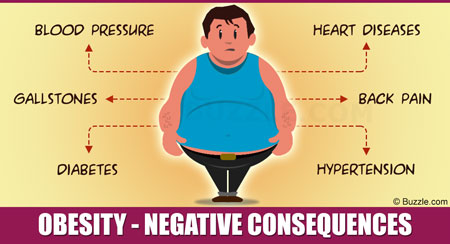Key to weight loss overlooked by 90 percent of Americans: Survey
 A recent survey found that 90 percent of respondents overlook the key to successful weight loss. With the New Year approaching, weight loss resolutions are a top priority and yet many fail to actually follow through. Estimates reveal only eight percent of those who make weight loss a New Year’s resolution are successful.
A recent survey found that 90 percent of respondents overlook the key to successful weight loss. With the New Year approaching, weight loss resolutions are a top priority and yet many fail to actually follow through. Estimates reveal only eight percent of those who make weight loss a New Year’s resolution are successful.
Furthermore, even if somebody manages to lose some weight right off the bat it usually comes back. Studies have shown that two out of three individuals who lose five percent of their body weight will gain it right back, and the more weight lost, the less likely it will stay off.
“Most people focus almost entirely on the physical aspects of weight loss, like diet and exercise. But there is an emotional component to food that the vast majority of people simply overlook and it can quickly sabotage their efforts,” said Diane Robinson, Ph.D., a neuropsychologist and the program director of integrative medicine at Orlando Health.
A survey recently conducted by Orlando Health revealed that 31 percent of Americans believe a lack of exercise is preventing them from losing weight, 26 percent believe it is what you eat, 17 percent said it’s the cost of a healthy lifestyle and 12 percent said it was the necessary time required.
Only one of 10 respondents believed psychological well-being played a role as a barrier in weight loss. Dr. Robinson added, “In order to lose weight and keep it off long term, we need to do more than just think about what we eat, we also need to understand why we’re eating.”
Emotional attachment to food begins as children; we receive treats as a reward for being good and console ourselves with food when we’re sad. Celebrations and holidays, too, heavily revolve around food, including Halloween, Thanksgiving and Christmas. Dr. Robinson added, “If we’re aware of it or not, we are conditioned to use food not only for nourishment, but for comfort. That’s not a bad thing, necessarily, as long as we acknowledge it and deal with it appropriately.”
“We feel good whenever that process is activated, but when we start to put food into that equation and it becomes our reward, it can have negative consequences,” she said.
Researchers have found a link between stress, anxiety and other psychological issues and higher body mass indexes. Many people reach for comfort food when they are stressed out or feeling down.
Dr. Robinson came up with tips to help recognize an emotional attachment to food:
- Keep a daily diary of your food and your mood, and look for unhealthy patterns.
- Identify foods that make you feel good and write down why you eat them. Do they evoke a memory or are you craving those foods because of stress?
- Before you have any snack or meal ask yourself: Am I eating this because I’m hungry? If the answer is no, look for the root of your motive.
Dr. Robinson concluded, “When we’re focused on the physical aspects of weight loss, many of us have no problem joining a gym or hiring a trainer. How about joining a support group or hiring a psychologist? If getting your body in shape hasn’t worked out yet, maybe this time start with your mind.”
Also read: Weight loss protects knees, MRI study
Eating more fruits and vegetables helps in weight loss management
Source:
http://www.eurekalert.org/pub_releases/2015-12/m-sf
-
Dining Out And Losing Weight
One of the biggest challenges facing tho
-
Lose Weight Gain Back Your Life
Im going to share with you a simple but very life changing technique t
-
Starting A Runaway Global Warming Process
Accelerated global warming could lead to a runaway methane global war
-
Diet And Exercise Evolution Adaptation Part I Theory
Adaptation is the most important concept I teach. The human body adap
-
Shaving Advice And Best Brands For The Best Shave - Truefitt And Hill, Taylor Of Old Bond Street
Most of us probably dont visit the barbers for a shave or manicure, bu
-
How To Succeed In A Vegan Diet
In a vegan lifestyle, there is a strong
- DON'T MISS
- 3 Ways to Lose Belly Fat Quickly and Easily
- How To Get Maximum Weight Loss and Fitness Results
- Heart Association Diet Book Offers Recipe for Success
- Tamela Mann: “I Was Good Enough To Be Heard, But Not Seen”
- Knowledge Is Power – Understand What Is Needed To Lose The Pounds
- Weight loss tips for teenage girls
- Weight-loss Plan – Making use of weight reduction diet food that makes balanced wholesome diet
- Low Carb Dieting For Profitable Weight Loss
- Loosing Weight Does Not Have To Be Difficult
- Can You Trust Low Fat High Carb Diet To Lose Weight?




